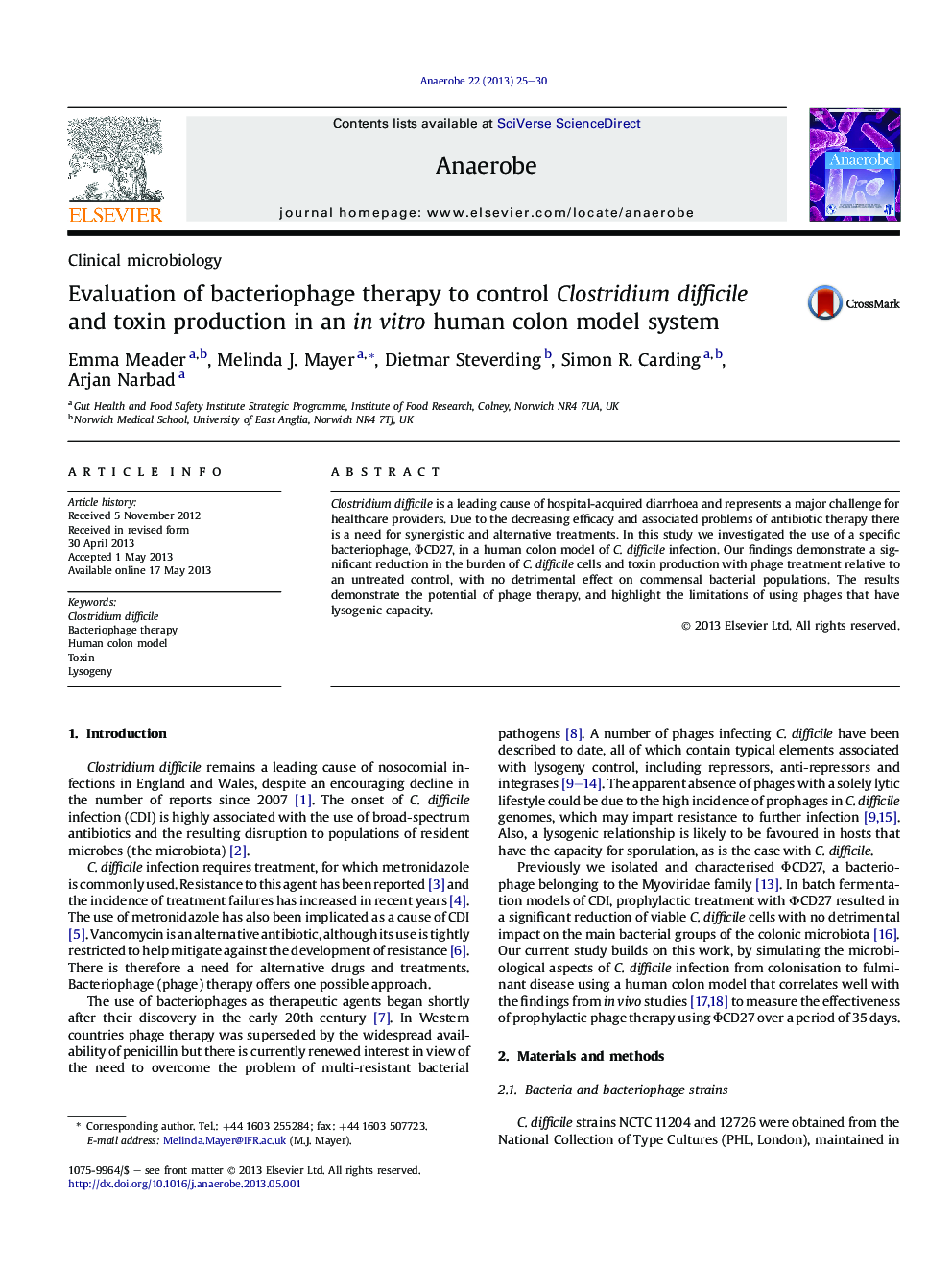| Article ID | Journal | Published Year | Pages | File Type |
|---|---|---|---|---|
| 6128756 | Anaerobe | 2013 | 6 Pages |
â¢The potential of phage to prevent Clostridium difficile infection has been studied in vitro.â¢Phage treatment reduced vegetative C. difficile cells in 2 of 3 experiments.â¢Phage treatment consistently reduced C. difficile toxin production.â¢Lysogenisation of the phage was demonstrated.â¢Commensal flora was not negatively affected by phage treatment.
Clostridium difficile is a leading cause of hospital-acquired diarrhoea and represents a major challenge for healthcare providers. Due to the decreasing efficacy and associated problems of antibiotic therapy there is a need for synergistic and alternative treatments. In this study we investigated the use of a specific bacteriophage, ΦCD27, in a human colon model of C. difficile infection. Our findings demonstrate a significant reduction in the burden of C. difficile cells and toxin production with phage treatment relative to an untreated control, with no detrimental effect on commensal bacterial populations. The results demonstrate the potential of phage therapy, and highlight the limitations of using phages that have lysogenic capacity.
